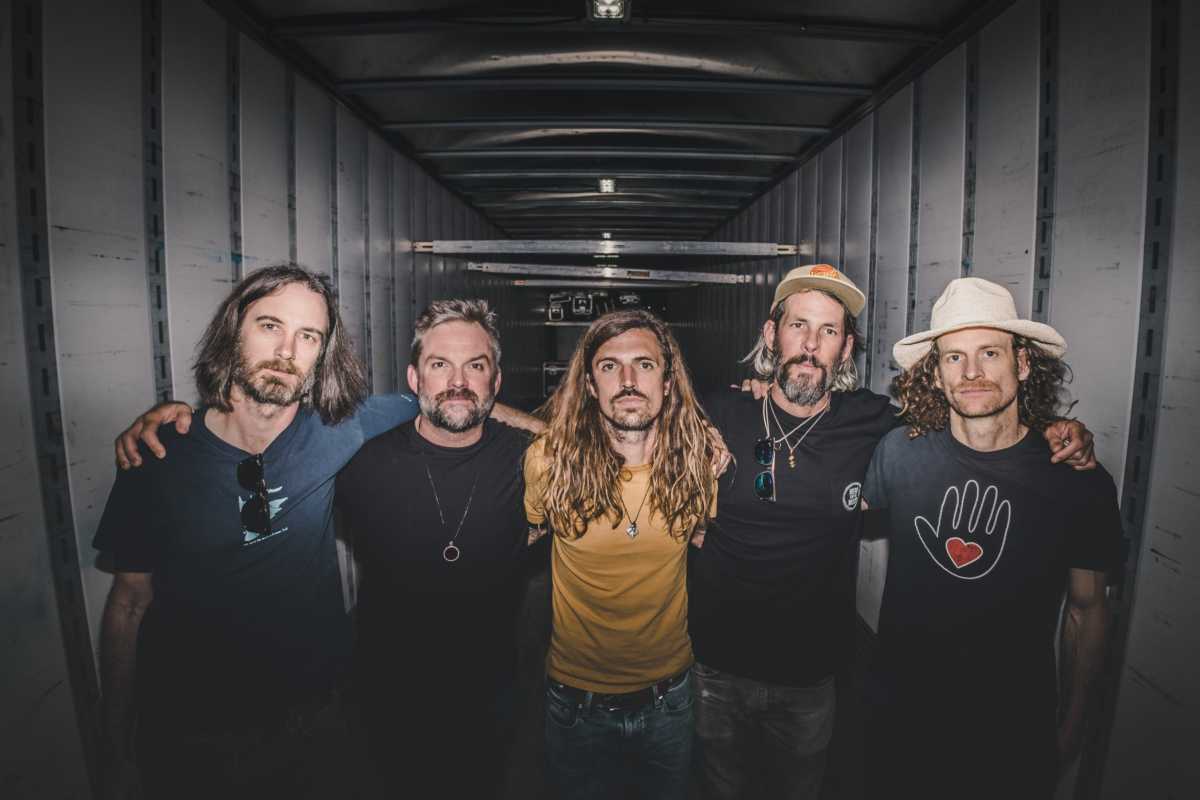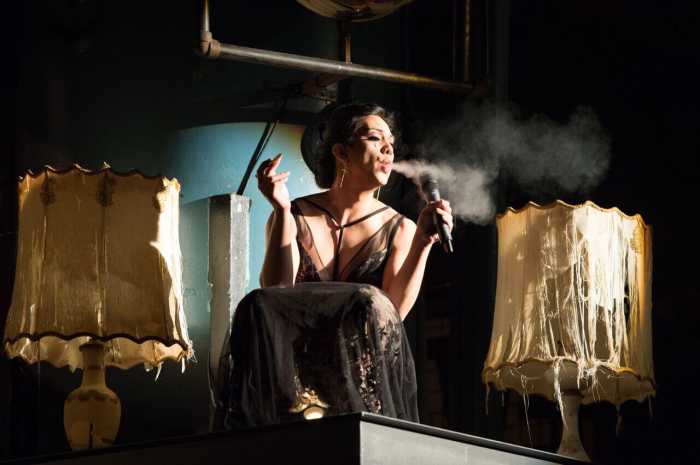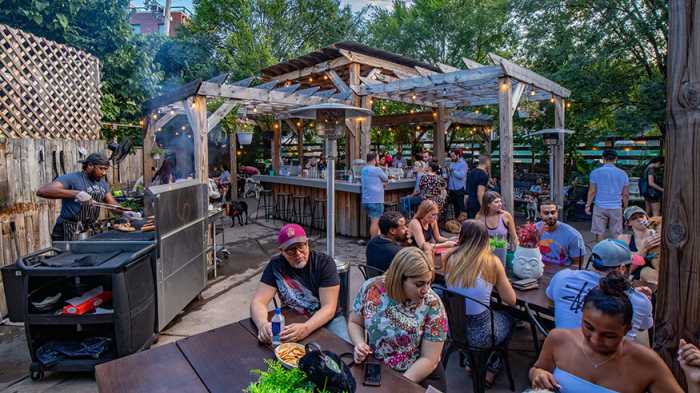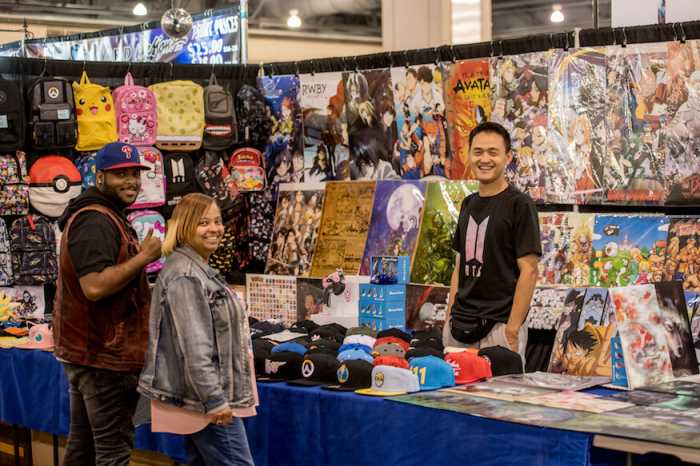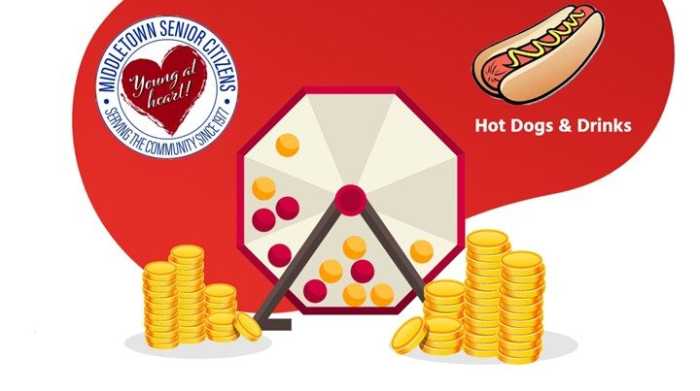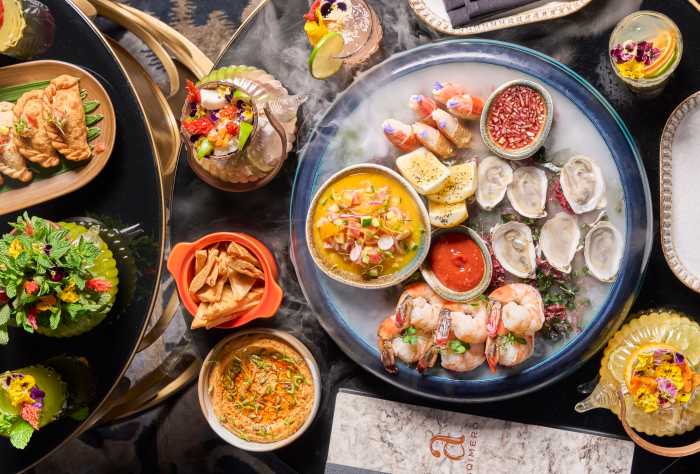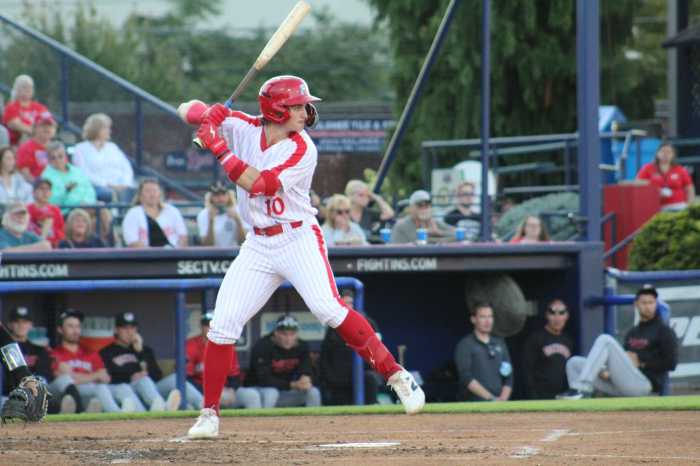With decades of success in the music industry, the celebrated band Dispatch has many accolades under their belt. Formed by Chadwick Stokes and Brad Corrigan while in college in Vermont, the duo — although throughout the now five-piece ensemble some members have come and gone — went on to become one of the first groups to successfully wade through the independent music world, leading them to great heights such as selling out Madison Square Garden for three nights in a row. And they did it all on their own.
But after a brief hiatus from the craft in 2002, the driving force behind achieving what they do both with their sound and their live shows has became fueled by making a difference—and this latest tour is a perfect example of that.
This year, Dispatch set out to co-bill with O.A.R. and G Love as a special guest, and the tour comes with fresh sounds (particularly from their new album ‘Break Our Fall’), nostalgic beats from the past three decades, and a charitable initiative. By partnering with Ending Mass Incarceration, Dispatch has put together a T-shirt and poster to help with the cause, with the tour’s proceeds going directly to the organization.
To chat more about what to expect from their tour and what continues to fuel Dispatch, Brad Corrigan sat down with Metro.
Dispatch is co-headlining with O.A.R. for this tour. Why merge together?
We all got our start collectively in the mid to late ’90s, just trying to figure out what was our genre and where did we fit? I think both bands had an appreciation for acoustic folk music and harmonies, but [we] also loved harder-hitting rock bands. We were both trying to hit our strides to figure out who we were. A couple of nights ago, we were reminiscing about all of the bands and the Aware Compilation back in the day. John Mayer came out of that, Dave Matthews was a little bit in it, Jack Johnson, Strangefolk, Acoutsic Junction, Virginia Coalition, Agents of Good Roots…
It was so fun to remember all of these bands that were peers, and kind of like sibling bands that we were all playing with. And then they went in their direction for years, we went in our direction for years and I think 4 or 5 years ago we came up with doing a co-bill. And obviously, scheduled it, canceled it, scheduled it and canceled it… And now, we’re finally playing together. But it’s such a fun fit. We’ve been together a week now and we’re just starting to open up all of the hilarious memories of our roots. We’re having a great time now playing and moving forward and having the same level of experience. It’s been really good.
What can audience members expect from the show song-wise?
I think OAR, Dispatch and G Love—this is a tour where we’re not at all afraid to be completely nostalgic, because this is the time to do that. And we’re all collectively reaching forward. The OAR guys dropped a new album called ‘Arcade’, so I know that they’ve got a whole body of new work that they’re excited to bring in. We released a record a year and a half ago that feels like it just came out because we haven’t been able to tour it. So, we’ve got three or four songs from that record, ‘Break Our Fall,’ which we’re working in to the mix and really enjoying. So kind of the best of the old and the best of the new and a really fun freedom to go where we want to go.
After such a long hiatus, how does it feel to get back to performing, especially with ‘Break Our Fall’ which hasn’t been freshly heard live?
We’re so incredibly fortunate. I think the majority of us were in a position where in the pandemic, there was still a way for us to find a silver lining for our families and most of us have—we’re just so privileged to be in a place where the pandemic didn’t mean that we were evicted. A lot of us have friends that lost family members, and I’m grateful I didn’t lose anyone in my family. But, it’s just such a strange thing to feel something in the world that is haunting and impacting most people really negatively and to be in a place where it was awful to feel caged and to not have income and feel like you cant do what you want to do.
Isolation I think impacted everyone in really difficult ways, but to come out of that and now be able to sing and perform… It’s just been amazing. The last week of shows, I think the focus has just been about the sheer joy of returning and just being so grateful. And no matter how hard you try, you do take it for granted. It’s up to us…if we want to play, we’ll play. But to know that’s not always the case now, I think you look at the stage so differently and you look at the crowd so differently. It’s just a collective sigh of relief almost that we’re all together again.
What do you hope audiences take away from your live shows?
I think we all hope they walk away feeling uplifted and so full of joy and energy. The other bi-product of feeling so isolated in the pandemic is that everyone has just got a horrible IV feed of mass media. I think everyone feels like we’re more divided than we’ve ever been in our entire lives—and it could be true. I certainly feel that sometimes, a lot. But when you get into a venue and everyone feels unified and everyone is singing and everyone is present and we’re all doing the same thing, there’s a oneness. I look around and I trust everyone here in this moment. I feel like we’re all believing and singing and everyone’s together.
Those moments have been fleeting in the last couple of years. So I think whatever it takes for a lot of people from different backgrounds to come together, look at each and other and feel together…I hope everyone leaves feeling really lit up and that we do belong to each other, and more than our political differences that I think have been so blown out of proportion by the media.
Dispatch has also been big in using tours as ways to support causes as well. Why is that important to the band?
I think for Chad and I in particular, probably the first half of or career, we were focused on the craft of making music and the songs themselves and who you’re going to work with to record your album. And the focus is so very much self-centered, band-centered and it makes sense from an evolution standpoint —but you get to a point where that’s not enough. And music, like is it just an end within itself? Or is it a means to something?
We took a big hiatus from making music because we felt like we were losing our full energy for making it. I went to Nicaragua to visit an orphanage in 2005 that just blew my mind and then the Nicaraguan taxi drive took me into the biggest landfill in the center of Managua, which had a township. 250 families were living inside of the trash dump. When your eyes are opened to new realities where you realize—why am I where I am, and why are these people where they are? How do our lives connect? Do they connect? And if they do, what can we do to help each other and bring light to each other’s stories? Once you eyes are opened to that you have a choice: You can either close them and unsee what you’ve seen and somehow stay focused on what you think your lane in the world is. Or, allow all of those things to come together.
So music becomes a stage and a platform and a spotlight where your songwriting can include some of those stories, and your hope is that you can leverage a tour to raise some money for those things and have partnerships with some of those organizations. We honestly can’t wait to tour because we’re stoked on the music and how strong a performance can be put together. I feel like we have a dream team in our bandmates, and how we can make this a gateway into a particular question mark or social activation and connect those two worlds. Because it’s really the best of both. If two things can come together like that, oh man, you never feel like you’re burned out on what you’re doing.
Catch Dispatch, OAR and G Love at the at the TD Pavilion at the Mann on Aug. 18. For tickets and information, visit manncenter.org.



